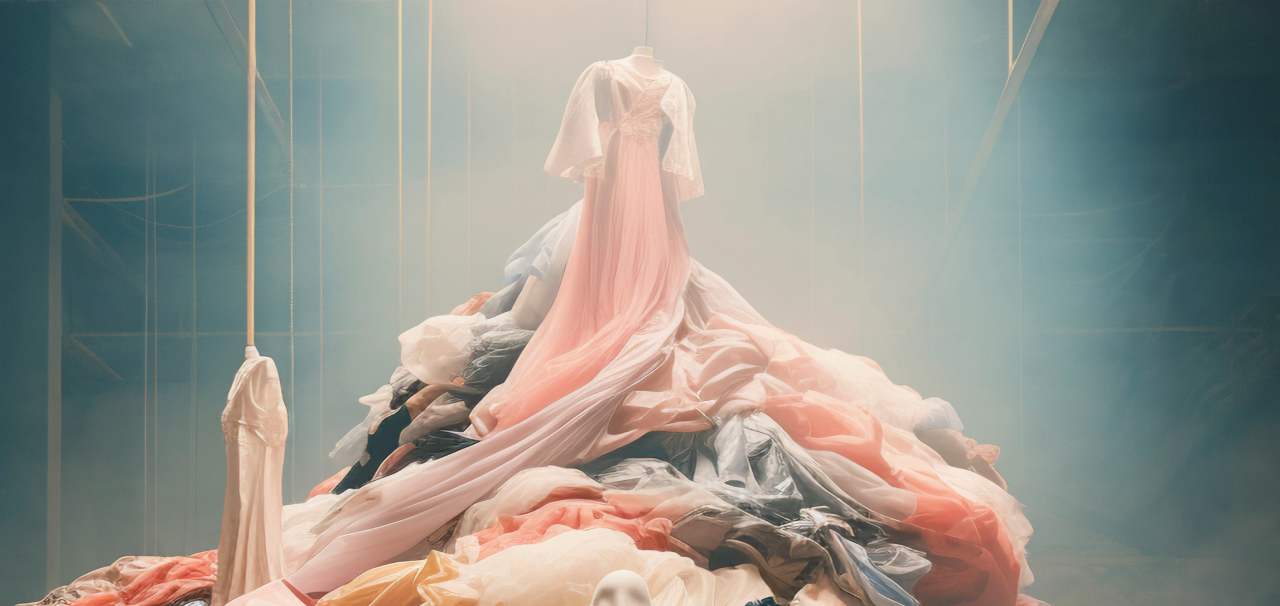We are pioneers in the creation of the first European integrated industrial site to transform textile waste in recycled fibers.
Embracing circularity, we revolutionize the industry with recycled textiles as your future solution. Through innovative processes, we transform waste into wearable fabrics, minimizing environmental impact and crafting a sustainable tomorrow.
Lorem ipsum dolor sit amet, consectetur adipiscing elit, sed do eiusmod tempor incididunt ut labore et dolore magna aliqua. Ut enim ad minim veniam, quis nostrud exercitation ullamco laboris nisi ut aliquip ex ea commodo consequat.
Active in the market from September 2025, marking the beginning of our journey.
Over five years of R&D experience in industrial solutions and recycled fiber markets.
Collection sites and local units,
including IGERS, its partners
and investors.
Our mission is to transform textile waste into high quality raw materials, contributing to a more circular and sustainable economy
We pursue a reduction in the environmental impact of textile waste thanks to innovative technology and advanced industrial processes, transforming the heterogeneous collected waste into homogeneous materials ready for yarn making and padding
Dedicated containers | Collection | Transportation | Administrative management | Traceability
Thanks to the group’s partnerships with players with a national footprint:
We provide a complete solution for textile waste management, offering recycled-material containers for storage, with scheduled collections handled by trained personnel. The waste is transported to our recycling facilities, and all logistics are managed via a dedicated platform.
We ensure full traceability, monitoring every step from collection to its final destination in the industry.
Sanitization | Analysis of the fibers | Selection of textile
Thanks to the innovative technologies we can enhance all textile, including the most complex compositions and allocate them to the most compatible industries:
We offer an advanced sanitization process using a patented cabin with a 9-ton/h capacity, capable of transforming waste into End-of-Waste (EoW) materials. Our technology includes innovative fiber analysis tools that identify fibers, colors, and composition on a band moving at 4 m/s. Textile materials are then sorted in high-capacity ballistic chambers for efficient separation.
Mechanical removal | Blending Box | Advanced Fraying | Traceability
Thanks to our extensive experience in the recycling of textile fibers, we have developed an innovative line for fraying, jointly with our mechanical partner:
We utilize mechanical systems to remove polluting components like buttons, zippers, labels, and elastic bands. Our specialized blending boxes homogenize fibers, while advanced fraying technology maximizes fiber length, producing high-quality flakes and frayed material suitable for the spinning industry. Full traceability is maintained throughout the entire process.
The plant is able to carry out automatically sorting and processing of post-industrial and post-consumer textile waste, in order to create recycled flakes. The plant, designed and patented by Igers, will create a hub in which the entire textile recycling chain will be concentrated.

The plant automatically sorts post-industrial and post-consumer items by fiber and color using optical selectors, processing at 4 m/s and performing material analysis with automated separation in ballistic chambers.
The second step mechanically separates fabric from packaging and accessories using software control. The material is then ripped, split, and further separated in mixing tanks with vortex air.
In the final stage, fibers are stretched by a condenser, then processed into flakes, wadding, or nonwoven fabric for 100% recycling. Each batch is traceable and recorded in blockchain via software.
The company handles 28,000 tons of waste annually, recycling it into yarns and panels with a total output of 11,760 tons. Its centralized process ensures greater efficiency and a higher ESG score than decentralized systems.
The European Union, thanks to the EU Directive 2018/851 and the “EU Strategy for sustainable and circular textile products”, has paved the way for a regulatory path aimed at achieving the pre-established objectives in the context of the
sustainability of the European textile supply chain.
EU Directive 2018/851 which ratified the obligation to establish waste sorting of textile fraction starting from 1 January 2025.
Adoption of EU Directive 2018/851 (Legislative Decree no. 116 of 3 September 2020), with accelerated timeline for the introduction of waste sorting obligation for the textile fraction in Italy starting from 1 January 2022.
Publication of “EU strategy for sustainable and circular textile products”, which introduces a series of objectives to achieve by 2030 in order to make the textile supply chain more fair and Sustainable at European level.
European deadline for the development of binding requirements for the design of textile products, in particular regarding their durability, recyclability and repairability, in line with what outlined by the 2022 EU Strategy.
Target for fully achieving community objectives, consisting in textile products mostly made of recycled or recyclable and, durable fibers, which are produced in compliance with social rights and without the use of harmful substances.
Source: EU Textile Strategy; EU Directive 2018/851
Logistics and Storage: Efficient logistics and storage services for material handling.
National market: Collection of textile waste directly from the brand’s sales points and by road collection in collaboration with consortia.
Professional Market: Management of processing waste, over-stock and tax destructions.
Recovery and Valorization: Beginning of the process of materials recycling following circular economy principles.
The goal is to fully meet EU objectives by producing textiles primarily from recycled, recyclable, and durable fibers, while ensuring social rights compliance and avoiding harmful substances.
Use of proprietary and patented technologies and machinery to transform the textile waste.
Patented processes that guarantee efficiency and quality of the transformation of textile waste into high quality raw materials. The removal of polluting items is performed mechanically, ensuring high quality feedstock.
The proprietary software tracks in the blockchain all the steps in the value chain, from collection to final transformation.
IGERS s.r.l. Via Pietro Verri n°11 20090
Trezzano sul Naviglio (MI) Italia
Sede: Piazzale Luigi Cadorna 10, 20123 Milano
igers@igerssrl.it P.iva – 09776430960
Energreen, Amphitheatre Parkway, Mountain View, California, 94043
IGERS s.r.l. Via Pietro Verri n°11 20090
Trezzano sul Naviglio (MI) Italia
Sede: Piazzale Luigi Cadorna 10, 20123 Milano
igers@igerssrl.it
P.iva – 09776430960